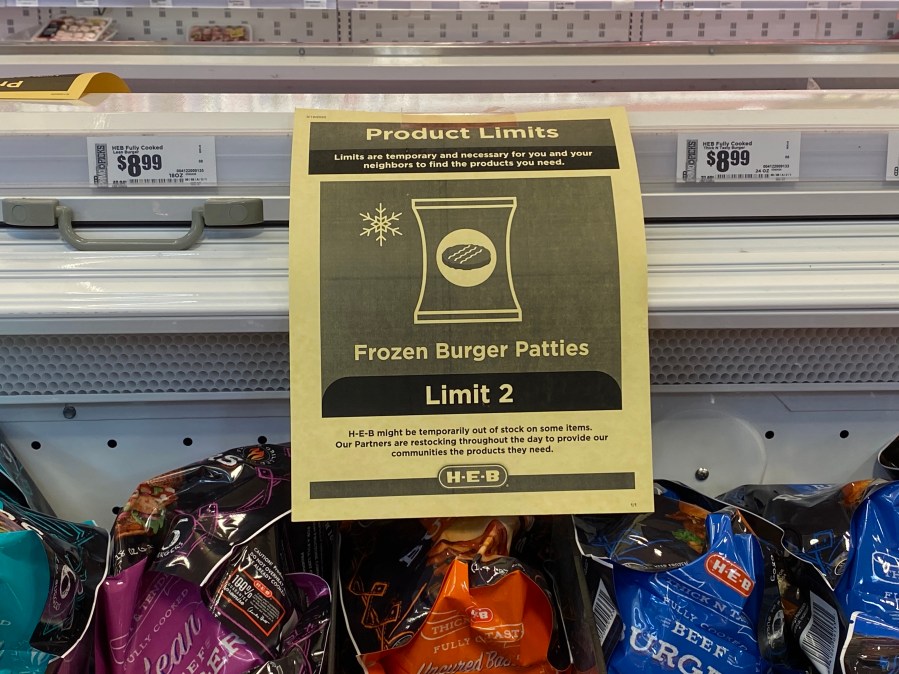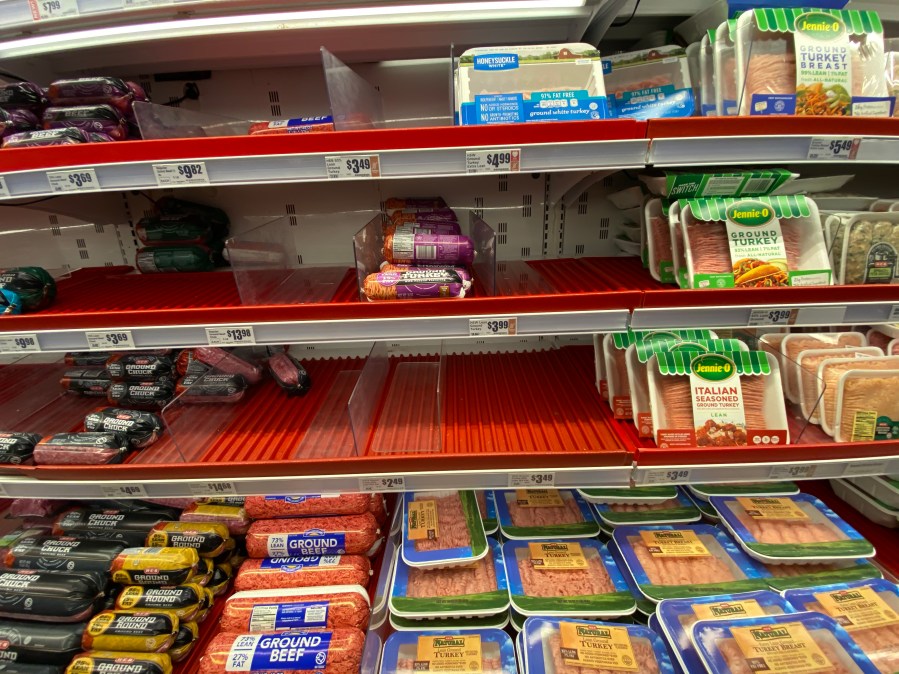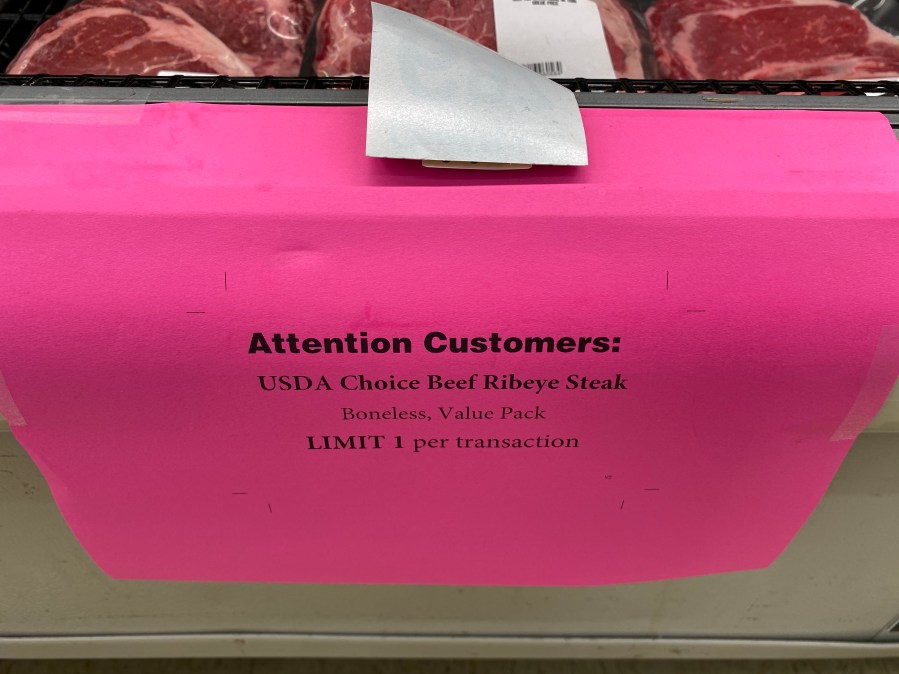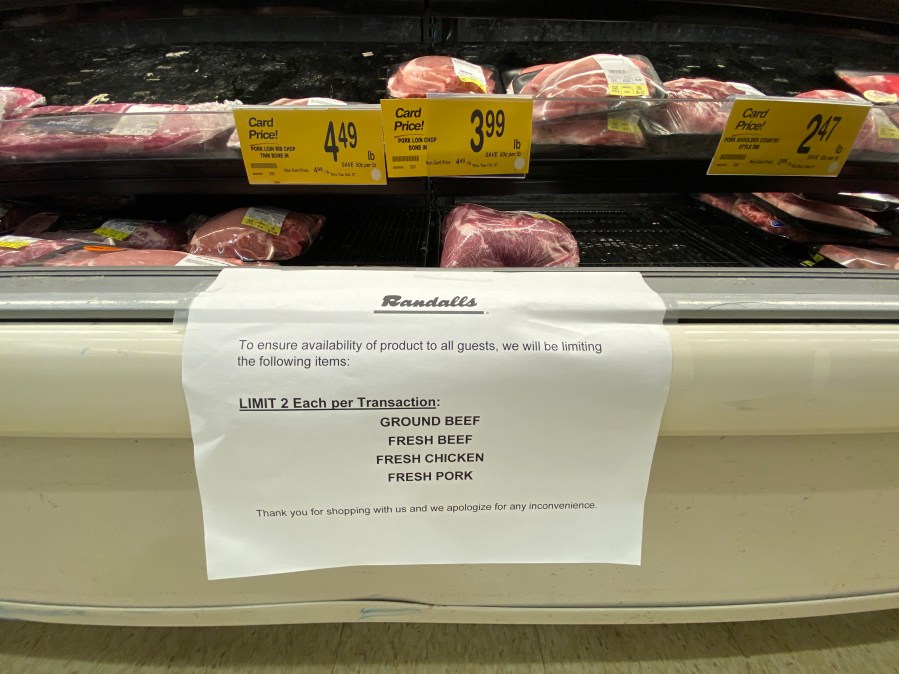AUSTIN (KXAN) – When Rusty Reddin slid behind the wheel of his truck to make the 80-mile trip to the cattle auction, he knew he was going to lose before he ever left his ranch in Utopia.
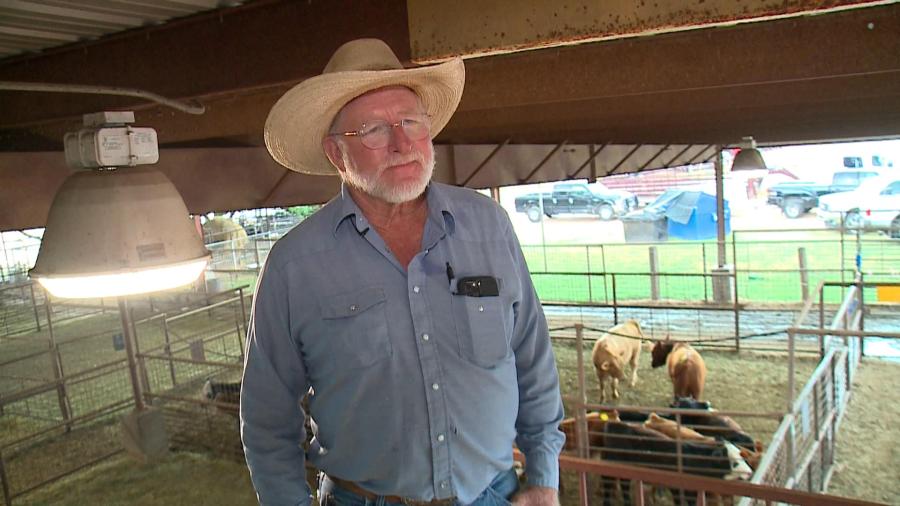
“The producer in the country is getting beat up on it pretty bad,” Redden said as he stood atop the cat walk that hovers above the Gillespie Livestock Company’s cattle pens in Fredericksburg.
Redden lamented over the $1.10 per pound he received on the last load of cattle he auctioned off.
The prices are at their lowest since 2011, Wayne Geistweidt told KXAN. He owns the auction company in Fredericksburg.
Ranchers take their cattle to the auction where slaughterhouse buyers cast bids on the cattle. From there, the “fat cattle” are taken to what’s known as feed lots where they stay until its time to be slaughtered and the meat parts are processed for sale.
Geistweidt pointed to a commodities computer in his office which showed a box of processed meat, called the cutout weight, going for $475. This is the price the packing plants make on a single cow.
This is the highest he’s ever seen since taking over his family’s auction business in 1971.
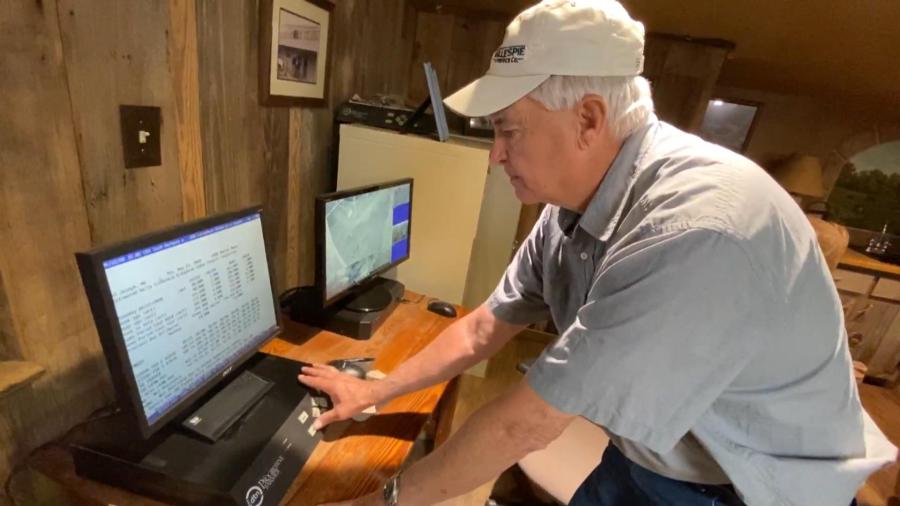
“They’re [meat packaging plants] making $1,500, $2,000 a head on the cattle where the farmer/rancher is only netting $7-$800 dollars on a calf and the feed lots are only netting $1,500,” Geistweidt said. “So they’re almost doubling their money on what we are losing money on and what the consumer is paying an excess amount of money for.”
“It’s $3 per pound is what a live calf is worth,” Geistweidt said, “Right now we’re getting $1.10.”
“Right now, the cow/calf operator is losing about $300 a head and those same packing plants I’m talking about are making up to $2,200 a head,” Texas Agriculture Commissioner Sid Miller told KXAN. Miller sent the U.S. Department of Justice a letter last week asking for a criminal investigation into what he suspects is “price fixing” among the nation’s large meat packers.
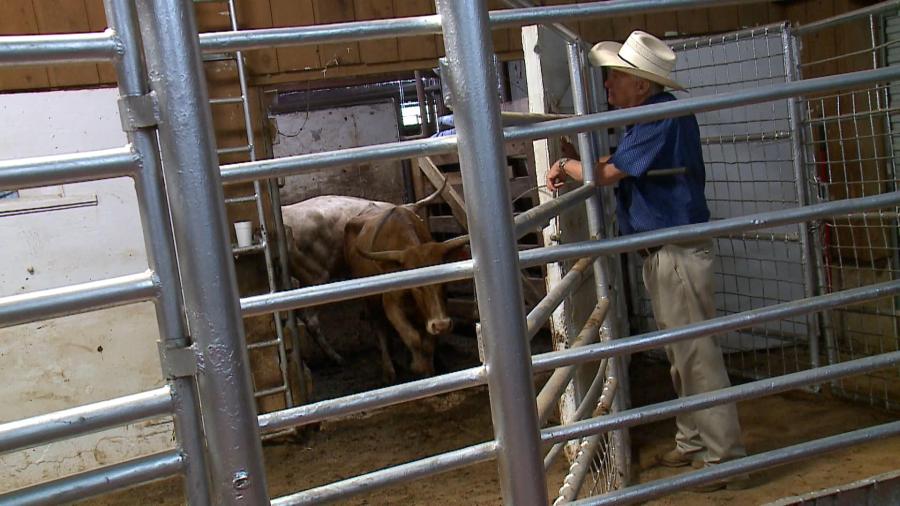
“What we have is a consolidation of packers in this country. There is about four major packers and it looks like they’re in collusion doing price control and driving the price. The price of retail beef is at an all-time high and the price ranchers are receiving is at an all-time low,” Miller told KXAN.
Miller said he believes what’s happening with the price disparity between what ranchers are being paid by slaughterhouses at auction when compared to the cutout weight is an indication of criminal conduct.
“I believe it is. I believe they will be prosecuted.”
Last week, President Donald Trump told reporters he’s also asked U.S. Attorney General William Barr to investigate the price disparities in the beef industry. The investigations would look for violations of federal anti-trust laws.
The price spikes aren’t a result of a decrease in demand, Miller said. Ranchers we interviewed said they have no shortage of cattle to sell. Their problem is that packing plants aren’t killing enough cattle to provide the supply needed at the meat counter.
Slaughterhouses are killing one-third fewer cattle each day, according to Geistweidt. That’s caused auction prices to drop because there isn’t the demand from the packers.
The global pandemic has created great market uncertainty and caused unanticipated slaughter disruptions,” Sarah Little wrote to KXAN. She’s a spokesperson for the North American Meat Institute, which represents the nation’s largest meat packers.
Meat packers need and rely on their livestock suppliers. We believe they have operated in the marketplace with integrity and we are confident have acted appropriately.”
Sarah Little, North American Meat Institute
Little provided the statement to KXAN in lieu of an interview about the allegations of price fixing. Little blamed the reduction in meat processing on the pandemic.
“USDA is in the midst of conducting an investigation following two catastrophic and unpredictable events: a fire at a beef plant in Kansas and the COVID-19 pandemic,” Little wrote, “Meat packers need and rely on their livestock suppliers. We believe they have operated in the marketplace with integrity and we are confident have acted appropriately.”
In March, U.S. Senators Michael Rounds, R-South Dakota, and Kevin Cramer, R-North Dakota, Steve Daines, R-Montana and John Hoeven, R-North Dakota sent a letter to the Justice Department asking for an investigation into the pricing disparities between the auction prices and the exploding price hikes on the meat packers’ end.
“Packers are in a unique position within the supply chain to exert control over the input of cattle that they buy from cattle producers,” the senators wrote in the March 19 letter. “Allegations continue to surface against packers for price-fixing schemes designed to undercut competition.”
The letter also detailed large spikes in boxed beef prices at the time, which the senators questioned. As of March 18, “boxed beef has slightly risen to over $247 million — that’s a 20 percent increase” in just five days, the senators noted.
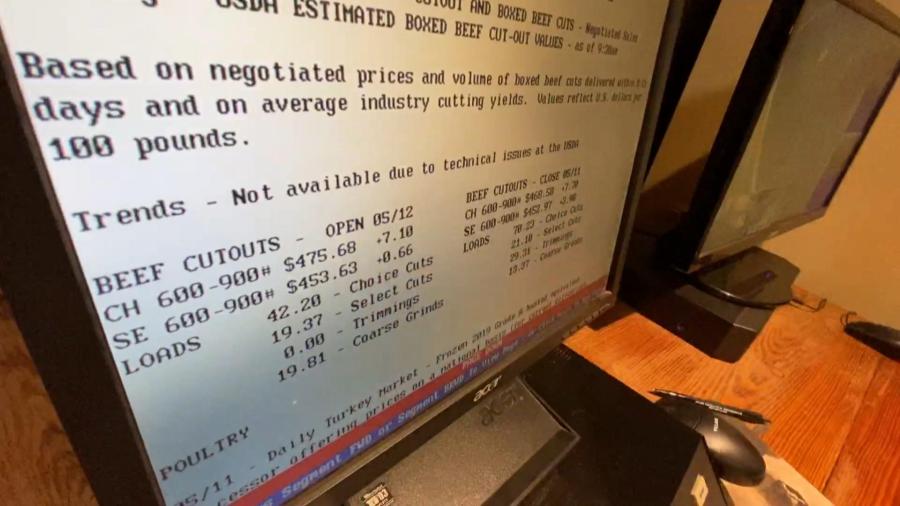
The letter specifically questioned the auction price versus the price the packers were charging retailers.
“The real or perceived existence of manipulative price control is further enhanced by the packers’ ability to control the timing and volume of slaughter. This further highlights why we find these allegations to be worthy of the Department of Justice’s review,” the senators wrote.
Nationally, fears of a beef shortage have been blamed for the high prices and empty store shelves. From what we saw at the Gillespie County auction, there is not a shortage of cattle ready to be slaughtered.
“The only reason that there would be any reductions is because of the price. Some of these people might have to go out of business because of the price they’re receiving for their animals,” Geistweidt told KXAN. “We do have the animals available, we just can’t get them killed per day.”
Geistweidt said he fully supported a federal investigation into the alleged antitrust violations, mentioning the cattle industry was back in the same situation it was 100 years ago when the federal Packers and Stockyard act passed Congress.
The law went into effect after the Federal Trade Commission launched a sweeping investigation into allegations that five major meat packers were manipulating beef prices and created what amounted to a monopoly in the cattle business with controls over stock yards and the sale of the meat they produced.
Geistweidt thinks the “big four” meat packers that control 80% of the nation’s beef processing are operating with the same controls today.
“We’re back to the same situation we were in 1921 and that’s phenomenal to see that 100 years ago this same situation had happened, was happened, did happen and they broke it up,” said Geistweidt. “And now we need some help and somebody to do the same for us again.”
